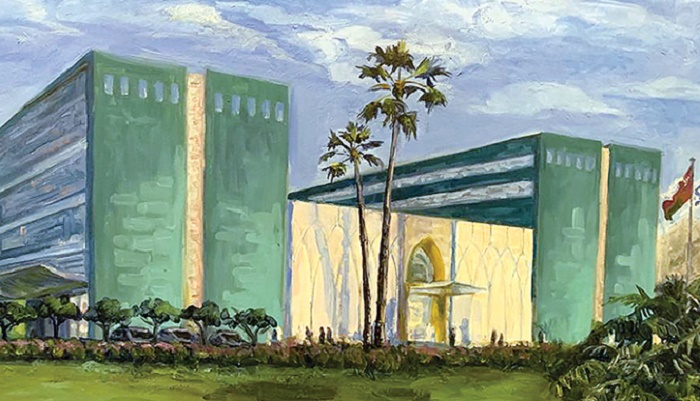
Muscat: Plans are being firmed up for the establishment of Oman’s first-ever private-led Spine & Orthopaedic Hospital and Rehabilitation Centre “semi-trauma centre”, a key founder and promoter has revealed to Times of Oman.
Insurance industry stalwart and anchor investor Murtadha Al Jamalani, who is a former Chairman of the Insurance and Finance Committee of Oman Chamber of Commerce and Industry (OCCI), said the state-of-the-art facility will be set up in the Majz el Sughra, Wilayat of Saham in North Batinah Governorate, with an estimated investment of OMR40 million (US $100 million).
The proposed partner for the “semi-trauma centre” will be VAMED Group, the Austria-based integrated global provider of healthcare solutions.
“As we speak, the shareholders are finalising their respective stakes and coming up with their equity contributions,” said Al Jamalani.
“Once this process is completed, work on the design & constructions engineering and government approvals will take about six month before construction work begins on the project. Our goal is to bring the centre into operation by around year mid-2025.”
The proposed venture will represent a significant boost to the government’s goal to tap private investment in the country’s healthcare sector with a view to easing the heavy burden currently being shouldered by public health services. In the field of trauma care, an outsized burden currently falls on Khoula Hospital, the nation’s only national trauma care centre in Governorate of Muscat.
According to Al Jamalani, a licence to set up and operate a modern, well-equipped semi-trauma care facility specialising in the treatment and rehabilitation of orthopaedic and spinal injuries initial application request has already been registered at the Ministry of Health.
At the same time, the promoters are exploring the potential to develop the project on a Public Private Partnership (PPP) basis in line with the government’s Oman Vision 2040 strategy to enlist the support of the private sector in the funding of key infrastructure and civil services.
The facility, when operational, will also go a long way in meeting the needs of trauma care in a country that continues to record a relatively high incidence of severe traffic accidents.
Industrial, sports injuries
Industrial and sports injuries in addition to referral cases resulting in a steady stream of casualties requiring surgery, treatment, hospitality and rehabilitation.
Furthermore, with the rollout of the Mandatory Health Insurance Scheme (Dhamani) due to be progressively expanded, the private healthcare sector will need to be suitably geared to receive policyholders requiring health services, the insurance industry veteran points out.
‘Poignant story reason to set up the centre’
At the heart of Al Jamalani’s decision to set up a semi-trauma care facility in Oman is a poignant story. It’s a tale of grief and heartbreak over the death of his beloved younger and only brother twenty years earlier.
Recounting the tragedy, Al Jamalani said his younger sibling – an employee of a local bank – had suffered a bullet injury on December 2003 while he was performing his duties during a robbery attempt.
Al Jamalani took immediate steps as soon as the doctors in Oman decided that he could not be further treated here in the country because such treatment [Spinal cord repair and rehabilitation facilities] were not then available in Oman.
Recollecting the incident, Al Jamalani said: On personal expenses and bank assistance, I called a specialist, a neurologist doctor, from Mumbai Hospital (India) to examine my late brother in Muscat.
The specialist recommended to take him to Stoke Mandeville Hospital, Aylesbury, Buckinghamshire (National Spinal Injuries Centre - NSIC) - England (UK) for further treatment and rehabilitation.”
Al Jamalani took his late brother to UK with the help of his brother’s employer and his friends and associates in the UK insurance & reinsurance industry.
Al Jamalani, who was employed in Saudi Arabia at the time, had rushed back to Muscat to oversee the task of getting his severely wounded brother the best medical care available. Although the bullet was extracted, the young man remained in unstable condition with specialists ruling out any hope of a speedy and complete recovery, given the severity of the injury.
After 69 days in a coma, the brother regained consciously but remained wheelchair-bound. His recovery was short-lived. While exercising in a gym, he suffered a heart attack and passed away.
In memory of his brother, as well as to augment the availability of orthopaedic and spinal injury care in the Sultanate of Oman, Al Jamalani vowed to spearhead the establishment of the first private-led trauma centre. A roughly 11,000 sq metre plot in Saham belonging to Al Jamalani is being donated to house this new facility.